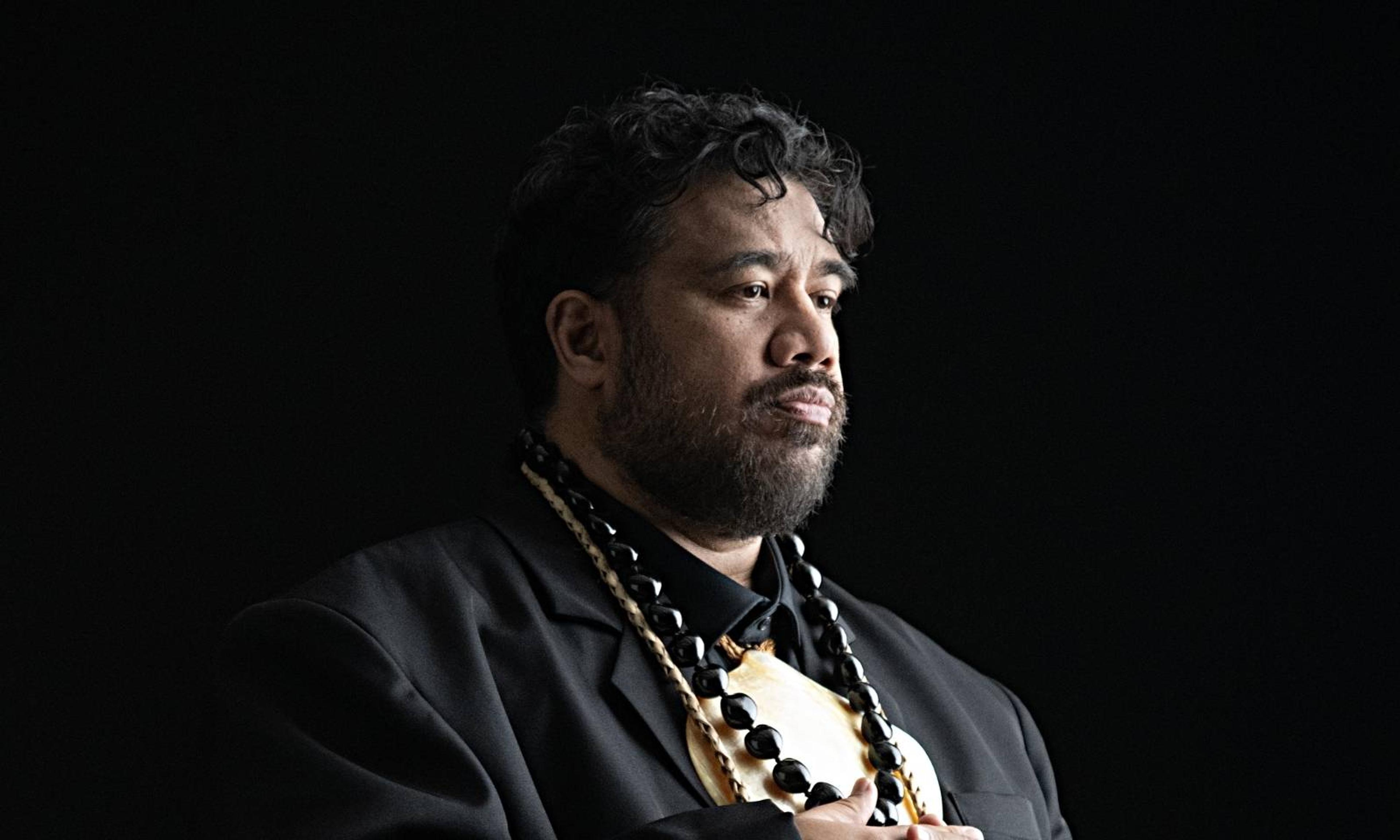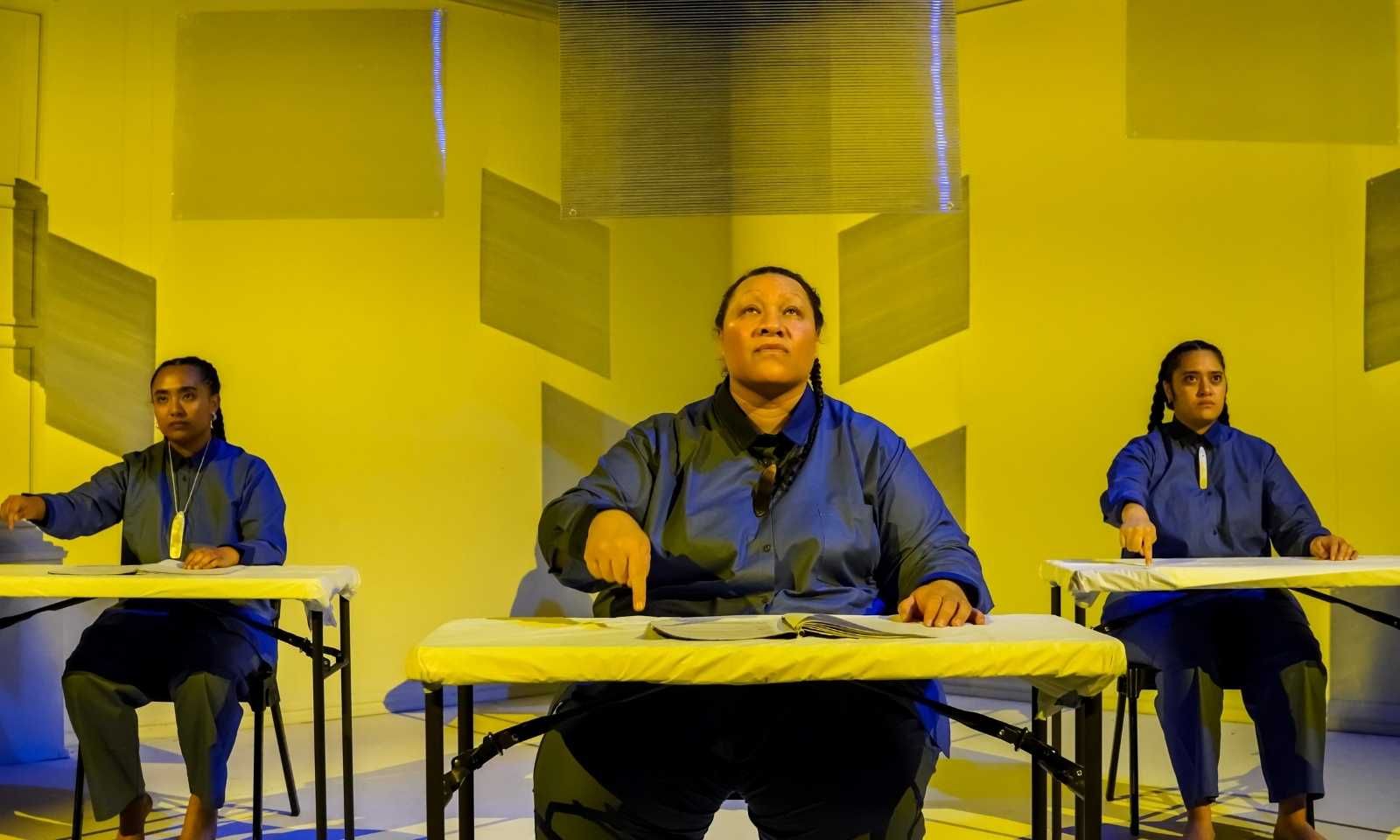

Emele Ugavule.
Photo/Website/Tautai
Pacific artist is writing her way back home
Through her plays and podcasts, Emele Ugavule explores language and identity while sharing the truths of Pacific life.



UK royal arrest sends shockwaves as Jeffrey Epstein files reference Pacific islands - reports

Second Apology: Fijian artist’s bold new film demands more for Pacific communities




UK royal arrest sends shockwaves as Jeffrey Epstein files reference Pacific islands - reports

Second Apology: Fijian artist’s bold new film demands more for Pacific communities

A renowned Fijian-Tokelauan artist says storytelling allows her to reconnect with her heritage, reclaim lost languages, and more closely share the realities of Pacific life.
Born in Takapuna and raised in Bindjareb Boodja on the southwest Coast of Western Australia, Emele Ugavule’s plays tour major theatres there, while her podcasts, Unravel and Solwata Kin, have attracted devoted audiences.
The Pacific storyteller also founded the Indigenous-led collective Studio Kiin and teaches at Toi Whakaari: New Zealand Drama School, helping to strengthen Pacific arts networks across the region.
Last year, she became the first Melanesian to hold the Emerging Pasifika Writer in Residence position at Victoria University’s International Institute of Modern Letters. The three-month role is supported by a $15,000 Creative New Zealand stipend and mentorship.
Speaking to Nemai Tagicakibau on Pacific Days, Ugavule says her writing helps restore languages she was not raised to speak fluently.
“Both my parents are fluent, my mother in Gagana Tokelau [Tokelau language], my father in Vosa Vakaviti [Fijian language], and Fiji Baat Hindi [Indian origins]. But unfortunately, my reality was not growing up in it,” she says.
“But being able to write my own work and to be a storyteller has meant that I have been able to learn how to speak, write and embed [my language] in my work. So I have a job where I surround myself with my culture.”
Ugavule says marriage to a Fijian from Vanua Levu further supports her language journey as she endeavours to integrate specific dialects from Serua and Deuba.
She says writing, “a form of creative expression”, empowers her to share stories from her family, her parents, and her experiences as a Pacific woman living away from her island.
Watch Emele Ugavule’s full interview below.
“I'm lucky. I'm very blessed that I have parents who have nurtured and encouraged me to follow my heart and be creative my whole life.
"It was a form of expression, and it has grown into so much more than that as I've come to understand the importance of storytelling in our communities.”
Indigenous knowledge and climate change
Ugavule says that if she had to choose one work to be remembered by, it would be her most recent piece, Talaucaka. This “legacy piece” addresses the impacts of climate change on Pacific families, many of whom are forced to migrate to survive.
“In that there is a movement of resistance from our people that is tied to our indigenous knowledge systems. I want to believe that no matter what happens to our people… that our people will hold onto our culture and knowledge, and that is a reflection of what I have seen so far in the communities that I’m part of.”
She says this work connects her to other plays she has written, featuring some characters reimagined at different points in their lives, while others are completely new.

Scenes from Talaucaka. Photo/Taylor-Rose Terekia
The unseen Pacific labour
Ugavule’s most challenging project is her residency script, Ancestor Incarnate. It imagines a Melanesian sci-fi future in which workers seize control of Australia’s PALM and New Zealand’s RSE Pacific labour schemes.
She says her interest in these schemes stems from the fact that the labour of migrating Melanesians is often overlooked, despite their key role in boosting these foreign countries’ agricultural industries and economies.
The story also explores how different Melanesian communities interact in this imagined future, given that the vast and varying languages across Melanesia require intricate insights for the writing process.
“It was complex because the work was looking at migration in the future. A lot of my plays for the last four or so years are futurist sci-fi works.”
The power of theatre and poetry
Ugavule says theatre and poetry are not just afterthoughts. They are vital for Pacific youth to express themselves, share knowledge, and better understand their identities and the world around them.
“For our diaspora, it's becoming harder for us to connect to certain stories or knowledge because of the busyness of life, being away from home, responsibilities for family and community and all these other things and dreams that we have.
“Theatre and poetry give us an opportunity to understand ourselves and to connect and build with other artists, storytellers and knowledge holders. It is an opportunity for our people to understand really complex things that are happening in our world in a different way.”